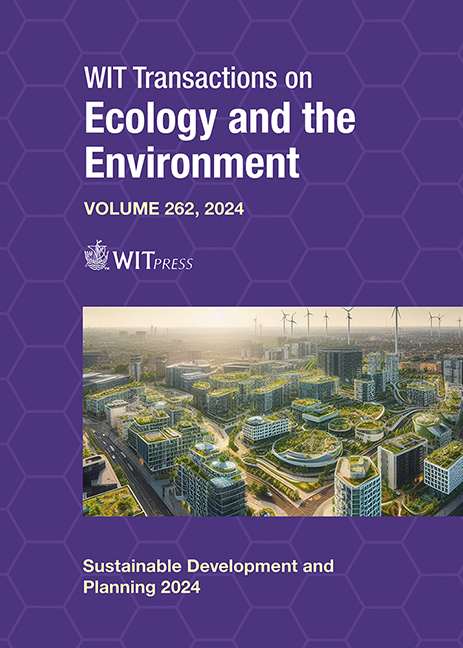ASSESSMENT OF THE ENVIRONMENTAL PERFORMANCE OF HIGHER EDUCATION INSTITUTES: THE CASE OF ITALIAN UNIVERSITIES
Price
Free (open access)
Transaction
Volume
262
Pages
11
Page Range
945 - 955
Published
2024
Paper DOI
10.2495/SDP240781
Copyright
Author(s)
MARCO SCHIAVON, ELENA CRISTINA RADA, LUCA ADAMI
Abstract
Higher education institutes (HEIs) contribute to educate future generations of scientists, decision makers and politicians. To overcome the present and future challenges involving environmental protection and climate change, the education of responsible individuals who may play a key role in improving global environmental sustainability levels is crucial. To achieve this goal, HEIs themselves must be promoters of values and ideas to support sustainable development. To start, HEIs should give a good example to students and society, provide best practices in terms of environmental conservation and sustainability, and be models to follow in terms of resource efficiency, energy use and waste management. However, the commitments and efforts of HEIs in this field must be measured in an unbiased way, to ensure a correct interpretation of their achievements, and with reference to the strategies adopted by universities. This paper aims to present the results of a survey on Italian universities in terms of energy consumption and related greenhouse gas (GHG) emissions, water use and waste production. These items will be presented in a temporal trend relative to specific parameters that help to decontextualise the results from the location of HEIs. Where available, information on the strategies implemented by HEIs to improve their performance will be reported and the results will be discussed. The results show improvements in terms of thermal energy consumption, water consumption and GHG emissions, whose decrease was favoured by a progressive shift towards renewable sources of electricity. Clear conclusions on waste production are not possible due to the insufficient amount of data. The indicators analysed here may be useful to important ranking systems, developed to assess HEIs’ performance worldwide, since the use of indicators that do not depend on the geographical context where HEIs are located may decontextualise the results and allow comparing different HEIs in an unbiased way.
Keywords
environmental sustainability, carbon emissions, energy consumption, environmental indicators, water consumption, waste management





